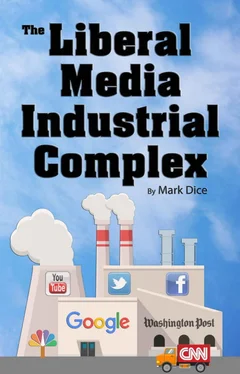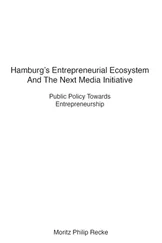Instagram has also begun testing new technology to fact-check memes by adding pop-ups that appear next to certain posts they deem “false” and even hiding them so they don’t show up when people are searching for particular hashtags. 621
The Thought Police don’t just patrol social media for what people post, they also keep a lookout for things that people “like.” During the 2018 season of The Bachelorette , one of the frontrunners (who got the “first impression rose”) made headlines after people were combing through his social media accounts and found that he had “liked” several “inflammatory” memes that made fun of illegal aliens, transgender people, and radical feminists. 622He literally just clicked the “like” button on a few funny memes making fun of social justice warriors and he was smeared in the press as a xenophobic, transphobic, sexist, and forced to apologize.
What It’s Doing To Our Brains
Steve Jobs wouldn’t allow his kids to even use an iPad when they were little, admitting in 2012 (two years after it was released), “Actually we don’t allow the iPad in the home,” in response to an interviewer saying his kids must love it. 623He knew how addictive they could be and how people, especially children, were vulnerable to being completely consumed by them. Apple CEO Tim Cook doesn’t have kids but says he has placed restrictions on what his nephew can do with technology, and he doesn’t want him using social media. 624
Bill Gates also limited the amount of screen time he allowed his kids to engage in and wouldn’t let them have cellphones until they were 14-years-old, despite them complaining that other kids in their class were able to have one. 625But using tablets or smartphones to surf the web or watch videos is one thing. Social media apps opened up a whole new world to waste people’s time and warp their minds.
The former president of Facebook, Sean Parker, later admitted the site creates an artificial social-validation feedback loop that is, “exploiting a vulnerability in human psychology” and “literally changes your relationship with society, [and] each other. It probably interferes with productivity in weird ways. God only knows what it’s doing to our children’s brains.” 626
Former Facebook executive Chamath Palihapitiya warned, “The short-term, dopamine-driven feedback loops we’ve created are destroying how society works,” referring to the validation people get from likes, hearts, and thumbs up on their posts. 627He also pointed out how “social media” is making people anti-social, saying it’s harming civil discourse and spreading misinformation and hoaxes that have real world consequences.
He mentioned how a hoax about a kidnaping spread through WhatsApp (which is owned by Facebook) in India and led to the lynching of seven innocent men who were killed by a local mob. “That’s what we’re dealing with. And imagine taking that to the extreme, where bad actors can now manipulate large swathes of people to do anything you want. It’s just a really, really bad state of affairs.” He also said his children “aren’t allowed to use that shit.” 628
A Google engineer posted a lengthy thread on his Twitter account about the dangers of Facebook, starting off saying, “The problem with Facebook is not *just* the loss of your privacy and the fact that it can be used as a totalitarian panopticon. The more worrying issue, in my opinion, is its use of digital information consumption as a psychological control vector.” 629
He went on to tweet, “The world is being shaped in large part by two long-time trends: first, our lives are increasingly dematerialized, consisting of consuming and generating information online, both at work and at home. Second, AI is getting ever smarter.” 630
“These two trends overlap at the level of the algorithms that shape our digital content consumption. Opaque social media algorithms get to decide, to an ever-increasing extent, which articles we read, who we keep in touch with, whose opinions we read, whose feedback we get.” 631
“If Facebook gets to decide, over the span of many years, which news you will see (real or fake), whose political status updates you’ll see, and who will see yours, then Facebook is in effect in control of your political beliefs and your worldview.” 632
“This is not quite news, as Facebook has been known to run since at least 2013 a series of experiments in which they were able to successfully control the moods and decisions of unwitting users by tuning their newsfeeds’ contents, as well as prediction user’s future decisions.” 633
“In short, Facebook can simultaneously measure everything about us, and control the information we consume. When you have access to both perception and action, you’re looking at an AI problem. You can start establishing an optimization loop for human behavior. A RL loop.” 634
“A loop in which you observe the current state of your targets and keep tuning what information you feed them, until you start observing the opinions and behaviors you wanted to see.” 635
“The human mind is a static, vulnerable system that will come increasingly under attack from ever-smarter AI algorithms that will simultaneously have a complete view of everything we do and believe, and complete control of the information we consume.” 636
“Importantly, mass population control — in particular political control — arising from placing AI algorithms in charge of our information diet does not necessarily require very advanced AI. You don’t need self-aware, super-intelligent AI for this to be a dire threat.” 637
“We’re looking at a powerful entity that builds fine-grained psychological profiles of over two billion humans, that runs large-scale behavior manipulation experiments, and that aims at developing the best AI technology the world has ever seen. Personally, it really scares me,” he concludes. 638
Even one of Facebook’s co-founders says the company is now “un-American” and is calling on the government to break it up. “The most problematic aspect of Facebook’s power is Mark [Zuckerberg’s] unilateral control over speech,” he said in a New York Times op-ed. “There is no precedent for his ability to monitor, organize and even censor the conversations of two billion people.” 639
Fake news and idiotic ideas spread faster on Twitter than perhaps any other social media platform. 640Unlike Facebook status updates which can be rather lengthy, Twitter is designed for short and quick messages (limited to 280 characters) and with the click of the retweet button, a tweet posted from anyone can soon be in front of the eyes of millions of people.
It’s a place where people share first and think later, and it’s often a sea of angry people arguing with each other and jumping to conclusions based on out of context statements, photos, or video clips; and quickly spread the falsehoods even further without a second thought. 641By the time the facts come out, the misinformation has already gone viral and shown up on the trending list—poisoning the opinions of countless others.
Few people delete their tweets which fueled fake news fires, and fewer still issue retractions when learning of their mistake. Even in those rare occasions the retractions receive little attention compared to the initial tweets, since they aren’t retweeted thousands of times, not to mention most of the damage has already been done.
When there’s a tragic event like a mass shooting, the wannabe sleuths online often end up naming and doxing the wrong suspect, and take someone’s photo from a social media account with the same name as the suspect and spread it around claiming they’re the killer. 642
Читать дальше












